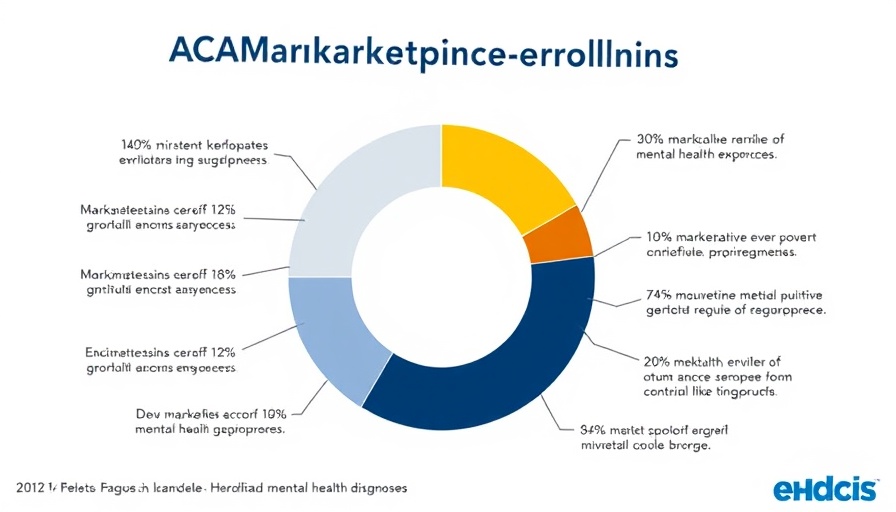
Understanding the ACA Marketplace Changes and Mental Health
The Affordable Care Act (ACA) Marketplace has seen a remarkable growth in enrollment, swelled from 11.4 million in 2020 to 24.3 million in 2025. While this growth is promising, particularly for those seeking mental health services, looming policy changes pose significant risks. Reports indicate that up to 8.2 million Marketplace enrollees may lose their coverage by 2034 due to the expiration of premium tax credits and other legislative shifts, raising alarms about access to critical mental health care.
The Mental Health Crisis Among Enrollees
As of 2022, an estimated 18.2% of Marketplace enrollees reported at least one mental health diagnosis. This statistic translates to around 4.4 million individuals in 2025 who may actively seek services for conditions such as anxiety or depression. However, this figure likely underrepresents the true prevalence, as many individuals with undiagnosed mental health conditions or those who do not utilize treatment go uncounted. What's more, a prior analysis noted that a staggering 39% of those experiencing moderate or severe anxiety or depression do not receive any treatment.
Gender and Age Disparities in Mental Health Diagnoses
Mental health issues are particularly prominent among younger adults, with those aged 26-34 and female enrollees exhibiting higher rates of diagnoses. This disparity suggests that targeted interventions could be crucial in supporting these vulnerable populations. For example, females in the Marketplace have a 22.8% rate of mental health diagnosis claims compared to 12.8% in males.
The Impact of Policy Changes on Mental Health Access
The potential for millions of enrollees to lose their insurance coverage due to policy alterations emphasizes an urgent need for action. The ACA transformations, especially those affecting premium support, could drastically impede access to mental health services. Given that mental health conditions often co-occur, affecting 39% of those with a diagnosis, the implications of losing coverage are profound. It’s critical to understand that without appropriate support mechanisms, these individuals may end up unable to access necessary care.
Advocating for Mental Health Services
As the landscape of health policy continues to transform, it’s vital for both citizens and lawmakers to prioritize mental health services within the ACA framework. Engaging with local health organizations or advocating for policy support can significantly impact the lives of those at risk of losing their coverage. Your voice matters in ensuring no one falls through the cracks—consider reaching out to community resources if you or someone you know is struggling.
 Add Row
Add Row  Add
Add 




Write A Comment